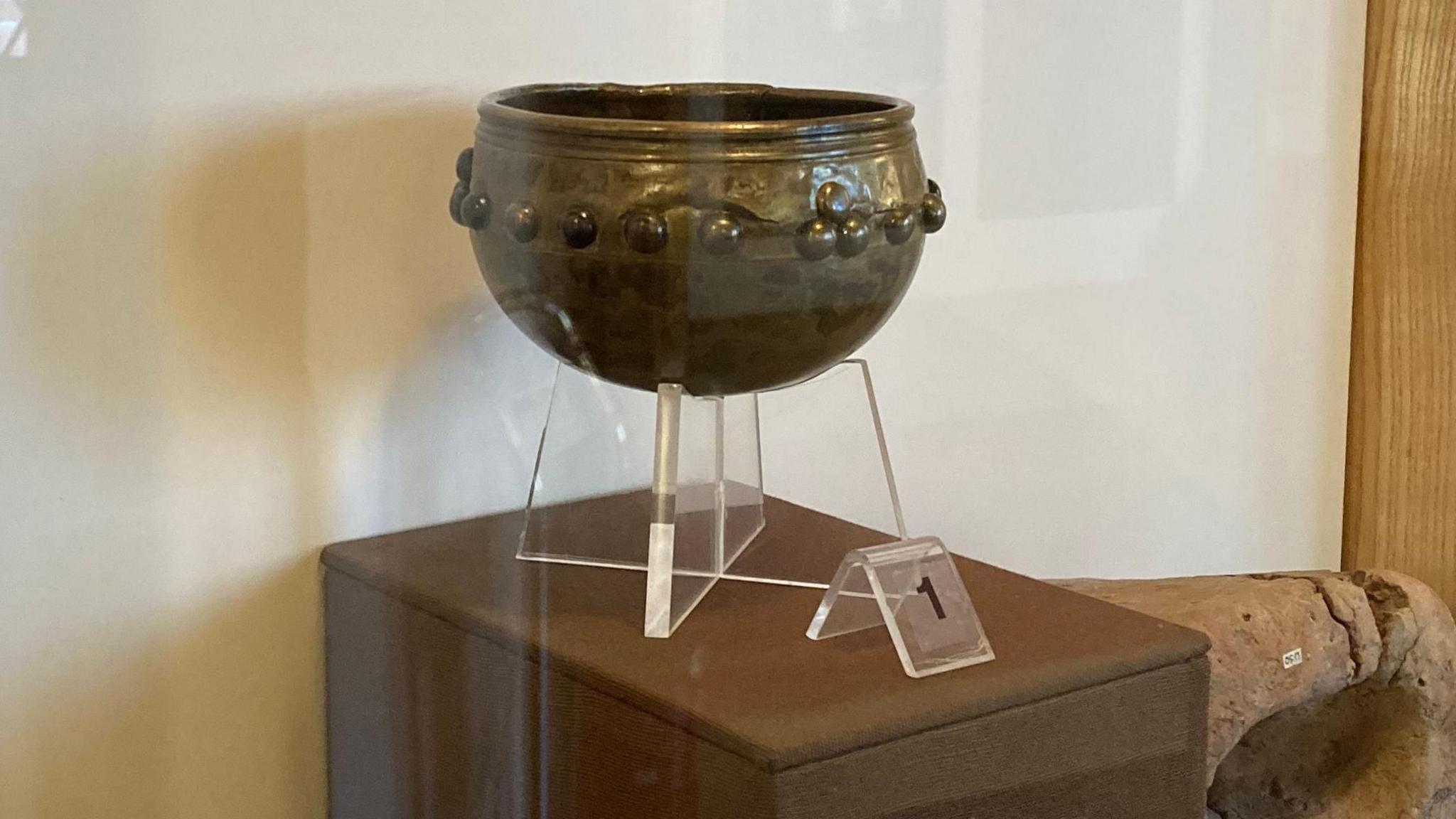First chance to see newly uncovered Roman villa
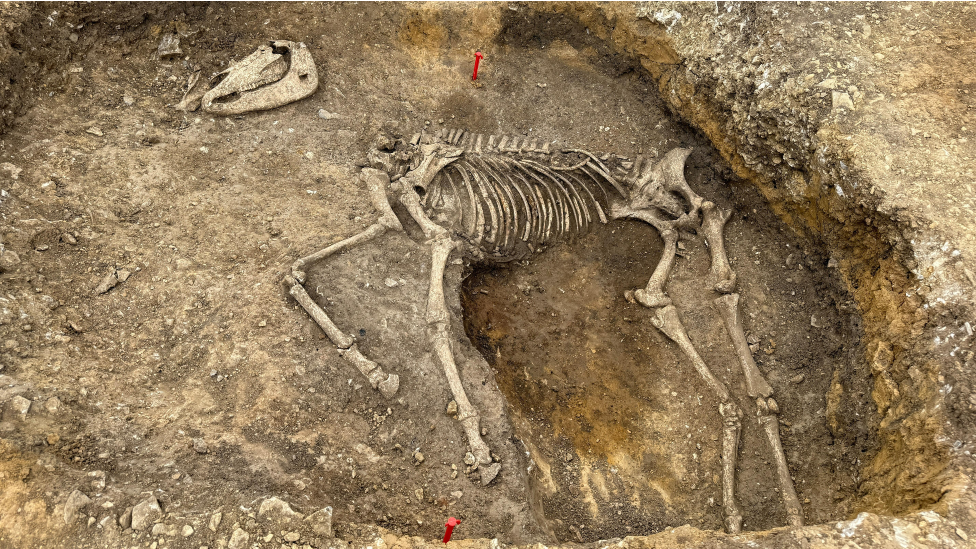
The discovery of a buried horse was a "spectacular and quite a rare find"
- Published
Archeologists have uncovered a Roman villa that could date back to as early as 50 AD.
On Sunday, the site near Langport in Somerset will be open to public so that people can view the villa and archaeological findings for the first time.
The site includes remains of an old Roman villa, a ritualistic horse burial and luxury items that were used by the occupants.
Agata Socha-Paszkiewicz, regional manager at Thames Valley Archaeological Services South West, said the finds were "quite a significant".
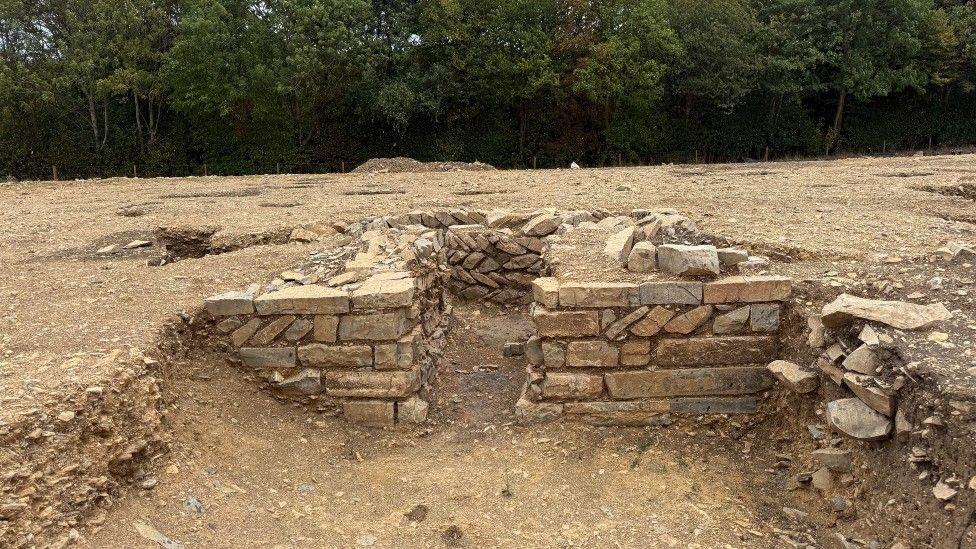
The people living in the villa complex were likely to have been a wealthy family
Ms Socha-Paszkiewicz said: "In the villa, there probably would have been extended family as well as servants and slaves at Roman times.
"We have surviving floors and an atrium and evidence of a mosaic, which means they were quite wealthy, upper middle class."
She said they found fragments of fine glass and hair pins that suggest they were trading with places quite far away from Somerset.
"We have some personal hygiene objects too, like tweezers. They are different objects that can tell us what life was like, how far they traded," Ms Socha-Paszkiewicz said.
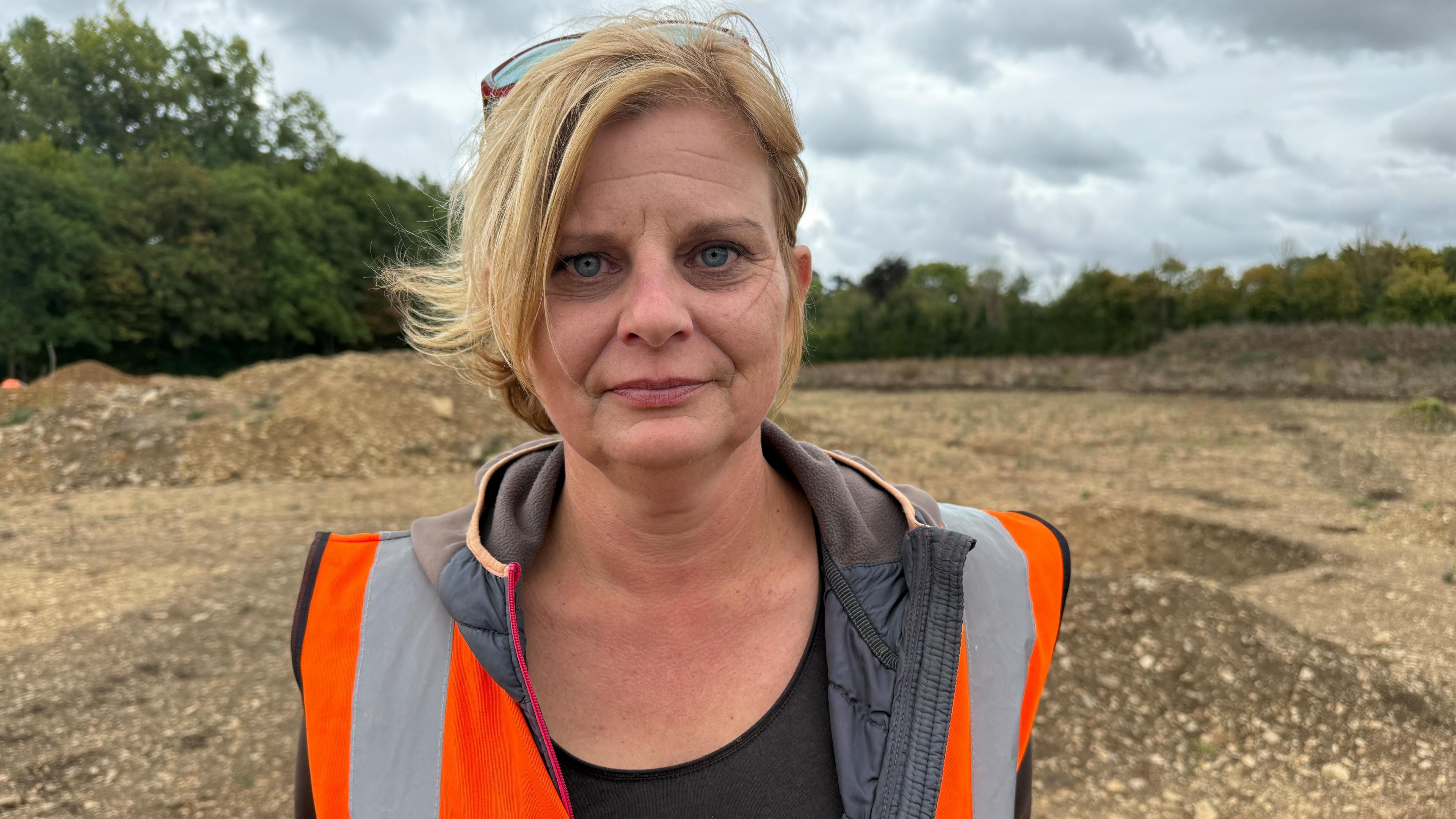
Agata Socha-Paszkiewicz said the findings were "quite significant"
She added that the most common items they found was pottery and animal bones, as well as more than 60 coins.
However, the most interesting find was a buried horse, she said.
The remains show it was buried on its side, with its legs arranged to look like it was still galloping.
"It usually would have been a ritual or spiritual act. That's quite spectacular and quite a rare find," Ms Socha-Paszkiewicz said.
People will be able to see the horse grave as part of the open day on Sunday.
Correction 3 September: This article was amended on 1 September to make clear that archaeologists uncovered a villa, rather than a village as originally reported. The article has also been amended to remove part of a quote from Agata Socha-Paszkiewicz, from Thames Valley Archaeological Services, as saying of the discovery "we are looking at probably several thousand occupants" because this was a misquote.
Get in touch
Tell us which stories we should cover in Somerset
Follow BBC Somerset on Facebook, external and X, external. Send your story ideas to us on email or via WhatsApp on 0800 313 4630.
Related topics
- Published22 July
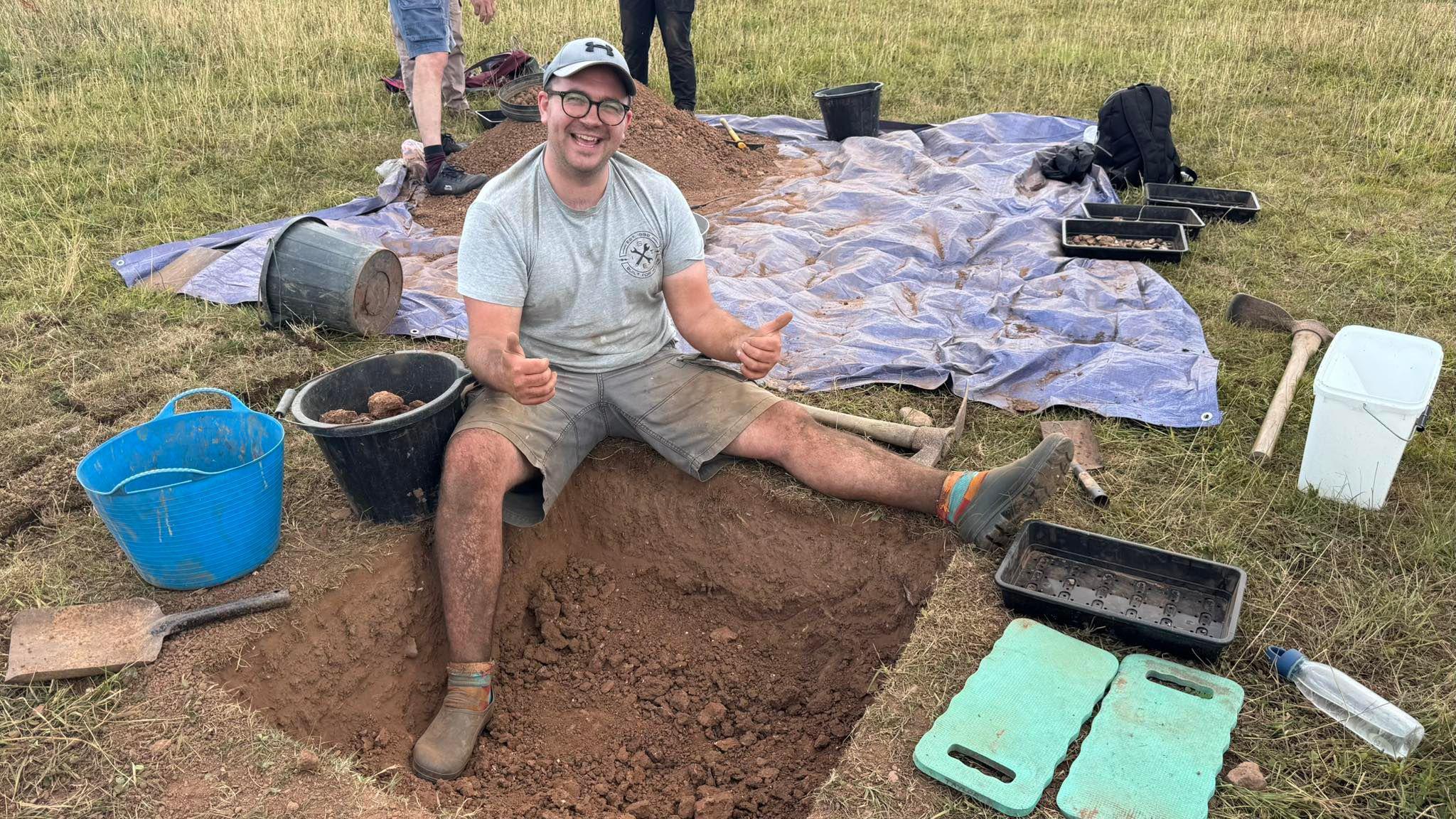
- Published10 June 2024
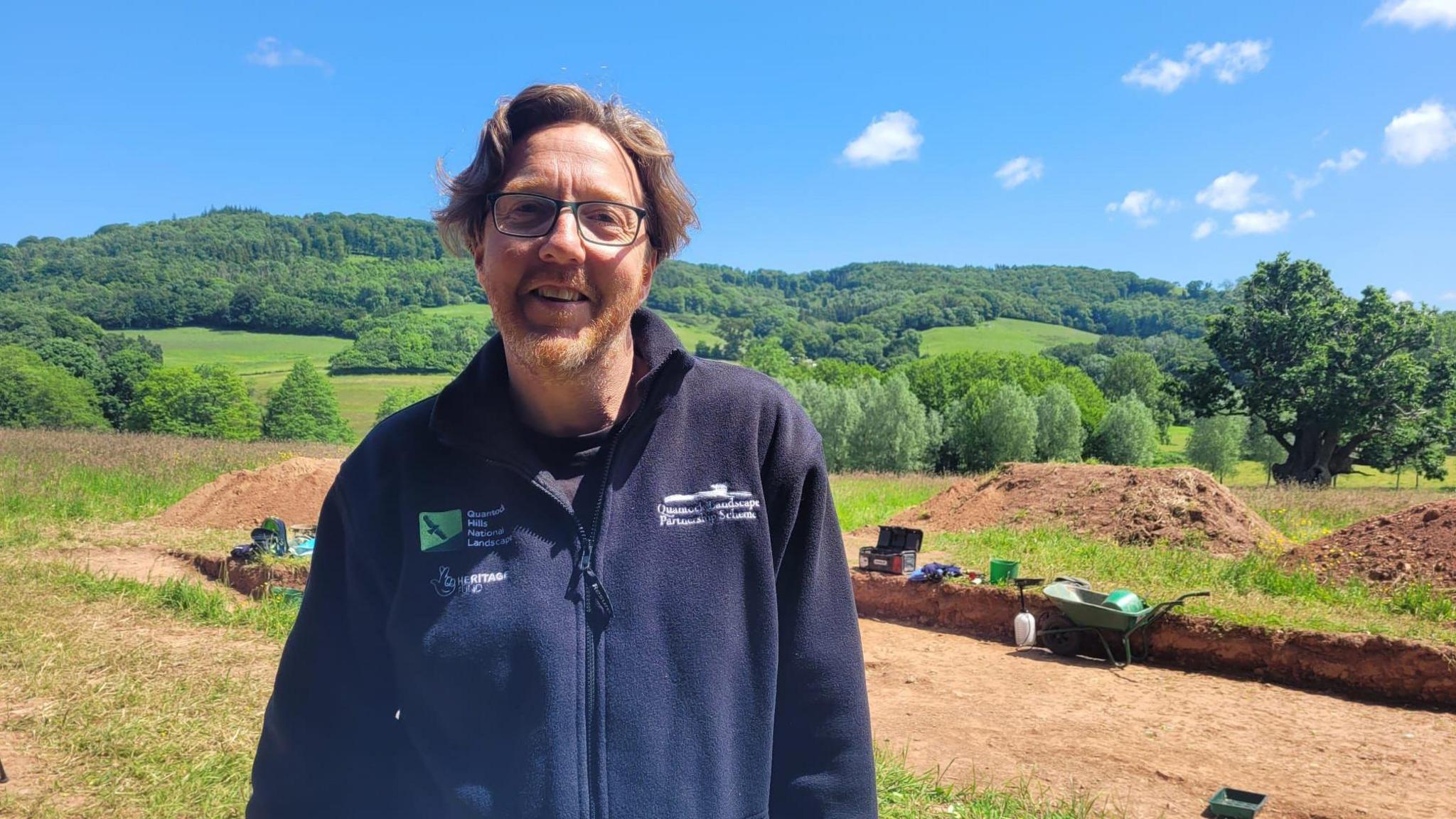
- Published21 June
